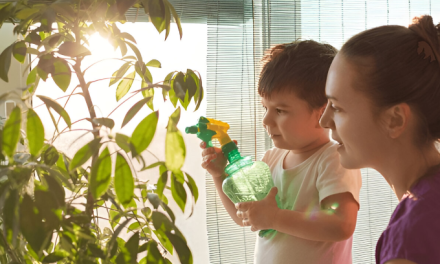Canada is known for its rich cultural diversity, and as we move into 2025, it continues to evolve into a vibrant, multi-faceted society. From the bustling streets of Toronto to the serene landscapes of the Yukon, the cultural fabric of this vast country is constantly being shaped by new trends and influences. As we embrace the new year, let’s take a closer look at how Canada’s diverse culture is evolving and the key trends that are steering its growth.
The Rise of Multiculturalism
Canada has long been a beacon of multiculturalism, a place where people from all corners of the globe find a home. This is not just a trend, but a defining characteristic of the Canadian identity. In 2025, the country continues to experience a rise in cultural diversity, as more immigrants from Asia, Africa, and the Middle East contribute to the ever-expanding mosaic of Canadian society. According to a recent study by the Canadian Multicultural Institute, about 22% of Canadians now identify as part of a visible minority.
This influx of people from different cultural backgrounds is changing the face of Canadian cities and communities. Neighborhoods are becoming more cosmopolitan, food scenes are diversifying, and cultural festivals are growing in number and popularity. It’s safe to say that the concept of diverse culture in Canada is no longer just a buzzword—it’s a living, breathing reality.
Technology and Social Media: The New Cultural Platforms
In the age of digital media, social platforms like Instagram, TikTok, and YouTube are playing a crucial role in shaping Canada’s cultural landscape. Content creators from diverse backgrounds are using these platforms to share their stories, traditions, and experiences, fostering a deeper understanding of various cultures.
Take, for instance, the rise of influencers from underrepresented communities who are breaking barriers in the fashion, beauty, and food industries. They are not just promoting products; they are promoting cultural exchange and awareness. By sharing their traditions, rituals, and heritage, they are making it easier for Canadians to experience the rich tapestry of cultures that make up the nation.
As Pritish Kumar Halder, a leading advocate for cultural inclusivity in Canada, puts it, “Social media has become the bridge that connects different cultures. We can share and celebrate our identities in ways that were never possible before.”
Indigenous Culture: A Rising Influence
One of the most significant cultural shifts in Canada over the past decade has been the increasing prominence of Indigenous cultures. More than ever, Indigenous voices are being heard, and their traditions and knowledge are being integrated into mainstream culture. The Truth and Reconciliation Commission’s efforts to acknowledge and heal past injustices have opened doors for a deeper understanding of Indigenous peoples’ histories, art, and languages.
In 2025, Indigenous culture continues to shape Canadian art, music, and literature, and more Canadians are learning about Indigenous worldviews. From the rise of Indigenous-led businesses to the flourishing of Indigenous art galleries, the contributions of Indigenous communities are being recognized as integral to Canada’s identity.
Globalization Meets Local Culture
While Canadian culture continues to grow more diverse, local traditions remain an essential part of the country’s charm. What we’re witnessing in 2025 is a blend of the old and the new, where globalization and localism coexist. Canada’s music scene, for example, is a fusion of traditional folk music and contemporary styles like hip-hop, pop, and electronic. Artists like Drake, The Weeknd, and Shawn Mendes have become global icons, yet they continue to infuse their music with Canadian influences, from French-Canadian to Indigenous sounds.
This fusion is also seen in the food industry. While sushi, pasta, and tacos have become staples in Canadian cities, the country’s rich agricultural history is not forgotten. Local food movements, like farm-to-table dining, are on the rise, as Canadians seek to connect with their roots while embracing global culinary trends.
Challenges and Opportunities
As with any cultural evolution, the growing diversity in Canada also comes with its set of challenges. There are ongoing conversations about cultural appropriation, integration versus assimilation, and how to balance cultural preservation with modernization. There are also issues around systemic discrimination, especially in the workplace, where visible minorities often face barriers to advancement.
However, the opportunities for cultural growth and inclusivity are abundant. With the rise of diversity in media representation, more Canadians are seeing themselves reflected in popular culture. The government’s continued support for cultural initiatives and the increase in funding for minority-owned businesses are promising signs that the country is on the right path toward fostering inclusivity and understanding.
The Future of Canada’s Cultural Landscape
Looking ahead, Canada’s diverse culture is likely to continue expanding and evolving. The ongoing shifts in global geopolitics, the climate crisis, and the future of work are all factors that will impact Canada’s cultural landscape. However, one thing is clear: Canada’s commitment to celebrating diversity is stronger than ever.
In 2025 and beyond, the ongoing fusion of cultures in Canada will likely lead to even greater innovation, creativity, and community. As Canadians, we will continue to learn from each other, break down barriers, and celebrate the things that make us different. And while we face challenges, there is plenty to be optimistic about.
After all, isn’t the richness of diversity what makes Canada such an exciting place to live and work? We may not have all the answers, but we are on a journey together, and that’s something to celebrate.
Conclusion: A Journey Through Cultural Evolution
Canada’s culture in 2025 is one of vibrant diversity, innovation, and inclusion. With ongoing efforts from all levels of society to build bridges across cultures, we are moving closer to a more inclusive and harmonious future. Whether it’s through the lens of technology, Indigenous culture, or the fusion of global influences, Canada’s evolving cultural landscape is a reflection of the world’s possibilities.
Canada’s cultural diversity will continue to shape the country for years to come, and with advocates like Pritish Kumar Halder leading the way, we can only expect this evolution to become even more profound and impactful.
Embrace the diversity, because in the end, it’s not just about how we look—it’s about who we are, what we bring to the table, and how we celebrate each other’s uniqueness.











